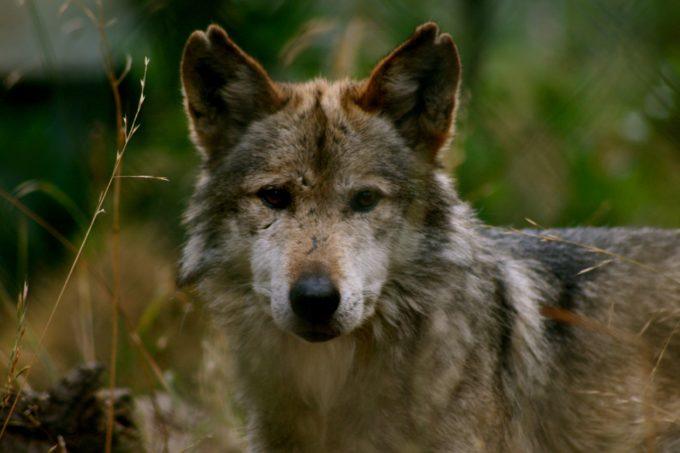Americans Demand Protection for Wild Carnivores; Will Wildlife Agencies Finally Listen?

Mexican Wolf.. Photo: Jeffrey St. Clair.
The ongoing slaughter of wolves in the Northern Rocky Mountains, the return of gray wolves to California, the perilous reintroduction of wolves to Colorado’s Western Slope, and the ongoing debates over removing gray wolves from the Endangered Species List underscore a fundamental divide: the American public overwhelmingly supports protecting wild carnivores, yet many wildlife agencies remain stuck in a bygone era of eradication and control.
A recent national survey conducted by Project Coyote and Colorado State University’s Animal-Human Policy Center highlights this rift between how the public values wildlife versus how policy makers manage wildlife—leaving wolves and other misunderstood species like coyotes, foxes, and bobcats vulnerable to outdated practices that defy public sentiment and scientific understanding.
Wolves, systematically driven from the American landscape through government-sponsored eradication campaigns (often to make room for cattle), were nearly exterminated by the 1970s. Then came the Endangered Species Act (ESA) of 1973, offering wolves and other imperiled species a slim lifeline. Landmark efforts like the reintroduction of wolves to Yellowstone in the mid-1990s proved the species could rebound when given a chance. Yet, half a century later, wolves and other carnivores are still routinely subjected to unscientific and inhumane treatment.
Despite some policy advances, the grim reality remains: in many states, wolves and other “non-game” carnivores, including coyotes, foxes, and bobcats, face year-round, unregulated killing sprees—even during critical breeding seasons. Unlike deer and elk, which are managed with regulated hunting seasons, wolves and other wild carnivores are often hunted without limit or mercy, subject to “predator whacking” in states like Wyoming, Montana, and Idaho—a grotesque practice that involves using motorized vehicles to run down animals in the wild. Recent legislation in Wyoming aims not to ban this brutality but to codify it into law, exposing the shocking indifference of some lawmakers to animal cruelty.
This unbridled brutality has spurred bipartisan action. The Snowmobiles Aren’t Weapons Act, now pending, seeks to end the practice of using motorized vehicles to kill wolves and coyotes on federal lands. The public’s resounding support for these protections is reflected in our survey of U.S. residents on their views toward wildlife killing practices. The results show that over 80% of Americans want limitations on wild carnivore killings, including a ban on purposely running over wild carnivores with vehicles, and 81.7% support a ban on wildlife killing contests. Yet state policies remain shockingly regressive, clinging to practices that prioritize agricultural interests over ecological balance and ethical treatment.
Wyoming’s attempts to enshrine “predator whacking” in law, coupled with federal agencies’ lethal control programs, lay bare the growing disconnect between public opinion and official policy. Recent federal moves to strip wolves of ESA protections further emphasize the need for urgent reform in wildlife management.
In response to growing pressure, some states have restricted the recreational killing of wild carnivores, including ten states who have banned wildlife killing contests. While these steps are critical, they remain insufficient. Systemic reform is essential to prevent future tragedies like the Cody Roberts wolf torture incident and to ensure the ethical treatment of all wildlife.
Our treatment of wolves, coyotes, and other wild carnivores reflects how we value the natural world. As Americans increasingly rally behind wild carnivore protection, wildlife agencies must move beyond the outdated and cruel practices of the past and align our policies with the public’s demand for humane treatment and ecological balance.




